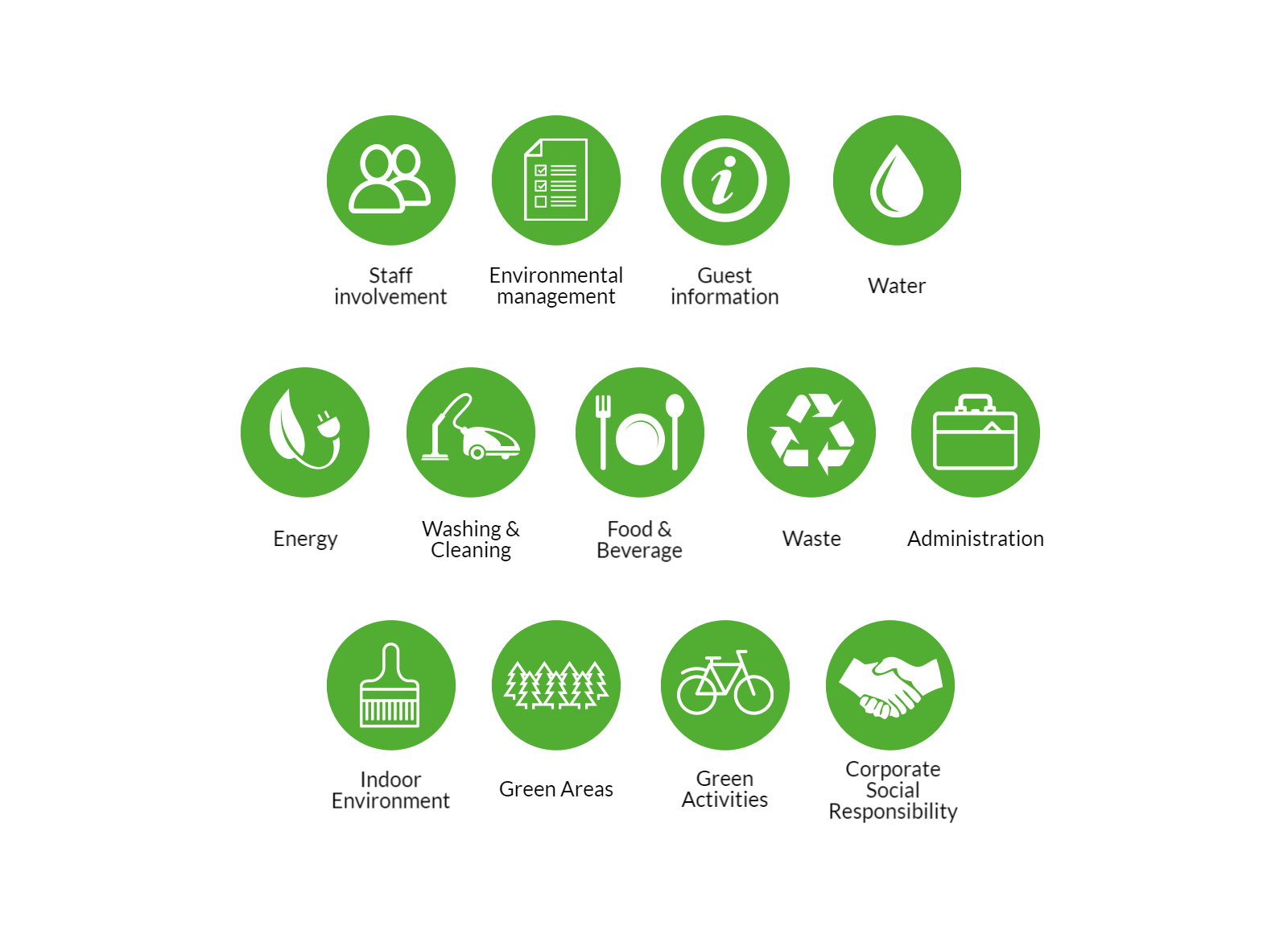Sustainable Tourism Initiatives In Africa
Explore the impact and benefits of sustainable tourism initiatives in Africa, ensuring environmentally friendly travel and economic growth while preserving cultural heritage and natural wonders for future generations.
Author:Jane RestureNov 17, 202323.7K Shares552.4K Views

Africa's landscapes are as diverse as its cultures, teeming with experiences that draw travelers from across the globe. Sustainable tourism initiatives in Africaare not just a growing trend but a necessity, ensuring that the very attractions that draw visitors—the rich wildlife, the vibrant communities, and the pristine environments—remain unspoiled for future generations.
The United Nations Environment Programme (UNEP) defines sustainable tourism as an imperative model that aligns with the environmental, social, and economic dimensions of sustainable development. This article delves into the continent's commitment to this form of tourism, exploring the initiatives that exemplify responsible traveland offer a beacon of hope for a sustainable future.
Embracing Environmental Responsibility
The promise of Africa's tourism lies in its vast savannas, dense forests, rich cultures, and historical landmarks. Sustainable tourism ensures that the growth of this sector contributes positively to the continent's future, safeguarding its uniqueness for generations to come.
Eco-friendly Practices In African Lodges
In response to the need for environmental stewardship, lodges across Africa have risen to the occasion. Eco-lodges, as discussed in the Switch to Green report, are leading the way in sustainable practices. These include the use of solar panels, rainwater harvesting, and the integration of local materials into building designs that blend with the environment.
For instance, Grootbos Private Nature Reserve in South Africa has implemented such practices at a commendable scale, offering an eco-conscious retreat for travelers. These lodges not only minimize their impact on the environment but also educate guests about sustainability and conservation.
Preserving Africa's Wilderness
Africa's wilderness areas are sanctuaries for an incredible variety of flora and fauna. Initiatives such as those outlined by African Safaris demonstrate how tourism can contribute to the preservation of these landscapes.
In Botswana's Okavango Delta, for instance, a commitment to low-impact tourism helps protect the delicate ecosystem. The model of private concessions operating within the delta has been successful in maintaining the area's biodiversity while providing guests with an intimate and sustainable safari experience.
Advancing Economic Viability
Community Involvement In Tourism
The involvement of local communities is a cornerstone of sustainable tourism. Rhino Africa's approach to sustainable tourism includes significant community involvement, where a portion of the revenue generated from tourism is invested back into local projects.
This has led to the development of schools, healthcare facilities, and other essential infrastructure, thereby ensuring that the benefits of tourism extend beyond the immediate economic boost to create lasting positive impacts on local communities.
Tourism As A Catalyst For Local Economies
The UNEP report articulates how sustainable tourism acts as a significant economic driver, particularly in rural areas where other forms of employment may be limited. By fostering local entrepreneurship and creating job opportunities, sustainable tourism can catalyze the transformation of local economies.
It encourages the development of ancillary services, such as local crafts and agricultural products, which can be marketed to tourists, thus providing a wider economic benefit.
Preserving Cultural Integrity
Celebrating Africa's Cultural Mosaic
Sustainable tourism in Africa is deeply intertwined with the preservation of its cultural heritage. According to the insights from Trip Legend, South Africa, in particular, has been a leader in this aspect, leveraging its rich history and diverse cultures to offer tourists experiences that are both enlightening and respectful of local traditions.
For instance, initiatives like the Robben Island Museum not only educate visitors about the nation's history but also contribute to the preservation of significant sites. Furthermore, the Cape Town Heritage Trust has been actively involved in protecting the architectural integrity and cultural narratives of the city, ensuring that tourism development does not come at the expense of cultural dilution.
Community-Based Tourism Success Stories
Community-based tourism projects underscore the concept of tourism that directly benefits those who facilitate the travel experience. The Switch to Green report and Rhino Africa highlight successful examples such as the Imbabala Zambezi Safari Lodge in Zimbabwe, which not only offers a breathtaking view of the Zambezi River but also ensures that the local communities benefit through employment and tourism revenue.
These community-centric initiatives are critical as they allow the local inhabitants to preserve their way of life while sharing it with the world, creating a tourism model that is sustainable both culturally and economically.
Sustainable Tourism As A Driver For Conservation
Wildlife Conservation And Eco-Tourism
The delicate balance between wildlife conservation and tourism is well-articulated by African Safaris. The conservancy model, especially prevalent in Kenya, demonstrates how eco-tourism can directly fund conservation efforts.
For example, the Mara Naboisho Conservancy offers a model where tourism revenue is shared with the local Maasai landowners, directly linking their economic welfare with the preservation of wildlife. Not only does this model help protect iconic species like the African elephant and the lion, but it also ensures that the local community views wildlife conservation as a valuable and beneficial endeavor.
Protecting Endangered Species
Eco-tourism's role in the protection of endangered species is nowhere more evident than in Uganda's Bwindi Impenetrable Forest, home to the critically endangered mountain gorilla. The Switch to Green report details how controlled tourism initiatives, such as gorilla trekking, generate funds crucial for conservation efforts.
By limiting the number of tourists and enforcing strict guidelines, these programs help ensure the survival of these majestic primates. Moreover, the revenue from tourism provides communities with alternative livelihoods, thereby reducing the pressure on the forest for resources such as firewood and land for agriculture.
Challenges And Opportunities In Sustainable Tourism
Addressing The Challenges
Despite its potential, sustainable tourism is not without challenges. The UNEP report discusses various issues, including environmental threats like climate change and the need for consistent community engagement.
To mitigate these challenges, there has been an emphasis on creating comprehensive management plans that integrate the preservation of natural resources with community development and environmental education.
The Role Of Technology And Innovation
Innovation is pivotal in addressing the challenges faced by sustainable tourism. As detailed in the Switch to Green report, advancements in technology are being harnessed to improve the sustainability of tourism operations.
This includes everything from digital platforms for managing visitor flows to more efficient water and waste management systems in lodges. Such technological solutions not only help reduce the environmental footprint of tourism but also enhance the guest experience, making sustainable practices a selling point for conservation-minded travelers.
The Future Of Sustainable Tourism Initiatives In Africa
Expanding Sustainable Practices
The UNEP report suggests that the future of sustainable tourism in Africa lies in the strategic expansion of current practices. This includes broadening the reach of sustainable tourism to encompass more areas and integrating it into broader economic and environmental policies.
It also involves scaling up education and capacity-building initiatives, ensuring that communities are equipped to manage and benefit from tourism in their areas.
International Collaboration And Support
The success of sustainable tourism initiatives often relies on international support and partnerships. The Green Key program in Morocco is a prime example of how international standards can elevate local sustainable tourism practices.
Such collaborations provide the framework and support necessary for African tourism destinations to attract environmentally conscious travelers and to operate according to global best practices.
Education And Empowerment
Investing in local education and empowerment is essential for the sustainability of tourism. Ensuring that community members have the skills and knowledge to take ownership of tourism initiatives leads to more resilient and adaptive tourism models.
It also fosters an environment where conservation and cultural preservation are part of the local ethos, further ingraining the principles of sustainable tourism into the fabric of African communities.
Sustainable Tourism Initiatives In Africa FAQs
What Is Sustainable Tourism In The Context Of Africa?
Sustainable tourism in Africa refers to travel practices that preserve the continent's environment, support the well-being of local communities, and contribute to economic development. It emphasizes low-impact travel and meaningful cultural exchanges that protect natural resources and cultural heritage.
How Does Sustainable Tourism Benefit Local Communities In Africa?
Local communities benefit from sustainable tourism through job creation, infrastructure development, and educational opportunities. Tourism revenues are often reinvested into community projects, enhancing healthcare, education, and the local economy.
Can Sustainable Tourism Help In Wildlife Conservation?
Yes, sustainable tourism is a critical component in wildlife conservation efforts in Africa. Eco-tourism initiatives like wildlife safaris fund conservation projects, protect habitats, and provide an economic incentive for communities to engage in conservation rather than poaching or habitat destruction.
What Are Some Examples Of Sustainable Tourism Practices In African Lodges?
Many lodges in Africa have adopted sustainable practices such as solar energy use, rainwater harvesting, waste recycling, and using locally sourced materials for construction. These practices minimize their ecological footprint and often provide educational experiences for guests.
How Is Cultural Heritage Preserved Through Sustainable Tourism?
Sustainable tourism initiatives often include partnerships with local cultural heritage sites and communities. This ensures that tourism activities do not erode cultural values but instead celebrate and protect local traditions and historical landmarks.
What Role Do Governments Play In Sustainable Tourism In Africa?
African governments set policies and regulations that promote sustainable practices in tourism. They may limit visitor numbers to sensitive areas, enforce environmental protection laws, and provide support for community-based tourism initiatives.
How Does Sustainable Tourism Address The Challenge Of Climate Change?
Sustainable tourism addresses climate change by promoting environmentally friendly practices, reducing greenhouse gas emissions through renewable energy and sustainable transportation, and raising awareness among travelers and locals about environmental conservation.
Is Sustainable Tourism More Expensive Than Regular Tourism?
Sustainable tourism can sometimes be more expensive due to the higher costs associated with eco-friendly practices. However, it offers a richer experience and ensures that travel has a positive impact, justifying the additional expense for many travelers.
How Do Tourists Contribute To Sustainable Tourism In Africa?
Tourists contribute by choosing responsible tour operators, respecting local customs and wildlife, reducing their waste, and supporting local economies through the purchase of local goods and services.
What Is The Future Outlook For Sustainable Tourism In Africa?
The outlook is optimistic as there is a growing awareness of sustainability issues among travelers and industry stakeholders. Continuous innovation, international support, and an increasing emphasis on conservation and community engagement suggest sustainable tourism will grow and thrive in Africa.
Conclusion
Sustainable tourism initiatives in Africa are not just preserving the continent's natural and cultural heritage—they are actively enhancing and celebrating it. Through a collaborative approach that involves local communities, governments, international partners, and tourists themselves, Africa is carving a path toward a future where tourism is a force for good.
It's a future that promises not only the protection of its landscapes and wildlife but also the flourishing of its peoples and their cultures. As these initiatives continue to evolve, they offer a powerful model for the rest of the world, illustrating that with commitment and innovation, tourism can indeed be sustainable.
Jump to
Embracing Environmental Responsibility
Advancing Economic Viability
Preserving Cultural Integrity
Sustainable Tourism As A Driver For Conservation
Challenges And Opportunities In Sustainable Tourism
The Future Of Sustainable Tourism Initiatives In Africa
Sustainable Tourism Initiatives In Africa FAQs
Conclusion

Jane Resture
Author
Since she embarked on her first world trip in 2002, Jane Resture spent the past decades sharing her personal journey and travel tips with people around the world. She has traveled to over 80 countries and territories, where she experienced other cultures, wildlife she had only read about in books, new foods, new people, and new amazing experiences.
Jane believes that travel is for everyone and it helps us learn about ourselves and the world around us. Her goal is to help more people from more backgrounds experience the joy of exploration because she trusts that travel opens the door to the greatest, most unforgettable experiences life can offer and this builds a kinder, more inclusive, more open-minded world.
Latest Articles
Popular Articles

